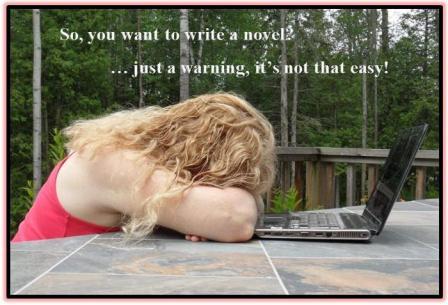1. Know your Subject Matter
So, how well do you know the subject of your next project? Do you know it well enough to explain it to a class of teenagers or a room full of seniors? Could you answer ten minutes of their questions without hesitating and freaking out? Let’s face it, the more you know about the subject in your novel the easier it will be to write… and the more believable it will be to read.
There are many ways to do research into a topic that you only know a little bit about, besides having first-hand knowledge and experience.
Visit your local library. Search out huge sections on your topic, scouring through every book you can get your hands on. The non-fiction section will be bursting with perfect background information for you. Also, don’t forget about the Young Adult section. They have amazing books that break your subject down into easy to read and easy to understand chapters. (i.e. animals, sports, drugs, alcohol, weapons, psychological disorders, Ancient Greece and other destinations, World War II, etc.) These books can give you a quick insight into the subject and help you decide if you want to tackle such a subject in your novel.
Do interviews. This is extremely helpful talking to people who have experienced your topic first-hand, contact them via telephone, email or in-person. Some people interview so many people, that after their novel on their chosen subject is finished and published, they write an accompanying book with all the interviews compiled in one place. It’s a great idea.
Visit the place. Where do you want your novel to be set in? The beach, the mall, prison, police station or a hospital? Just sitting for a few minutes, in the location you’re going to write about, helps your five senses come alive, and you can write a piece that makes the reader feel like he’s right there with you.
People Watch. If you’re writing about teens, visit a mall and eavesdrop on their conversation. Get a feel for how they speak to one another. If you are writing about sports, visit an arena or baseball field and write down what you hear. Specific phrases that are repeated. The smell of the hotdogs and popcorn. The sound of the crowd after a goal is scored. If you’re writing about senior citizens, visit McDonald’s Restaurant at 8:30am. They flock there to enjoy their coffee at the morning coffee club. Or maybe visit a seniors home?
2. Know Your Target Reader
Do you actually know who might pick up your book and read it? Who are you trying to influence with your writing? Here are a few questions to ask yourself, before you decide who you are trying to talk to:
Who is my reader?
What has currently been published that your reader finds intriguing?
What is interesting to this group of readers?
How does my reader feel about this topic?
What does my reader currently know about this subject?
What does the reader need to know?
Can you give the reader a new perspective on the subject?
How does my reader feel about this subject?
What would help a reader understand the subject better?
Do you as the writer, have something new to add to the subject matter that already hasn’t been addressed?
3. Know Yourself
You already know you are a writer, right? Otherwise, you wouldn't be here reading this. You also know a writer is someone who takes all the information they gather from doing research, they sort it all from a messy pile to an orderly stacked pile and then proceed to write it all down in clear precise manner that allows the reader to understand something easier. Does that make sense to you?
You, as the writer, need to communicate with your reader in a distinct clear voice that the reader loves. The reader needs to hear your voice stand out from all the other million writers out there. There’s no point in trying to write in a professional boring voice, or try to capture the voice of someone else… if you can write in an exciting unique voice, that is your golden nugget! It has to be a voice that your reader will remember. That is the key to success! You want them to remember your voice and you want them to crave more of your voice, hence, writing book number two… but that’s getting a little ahead of ourselves.
Good luck on deciding what your subject will be for your next novel.

 RSS Feed
RSS Feed